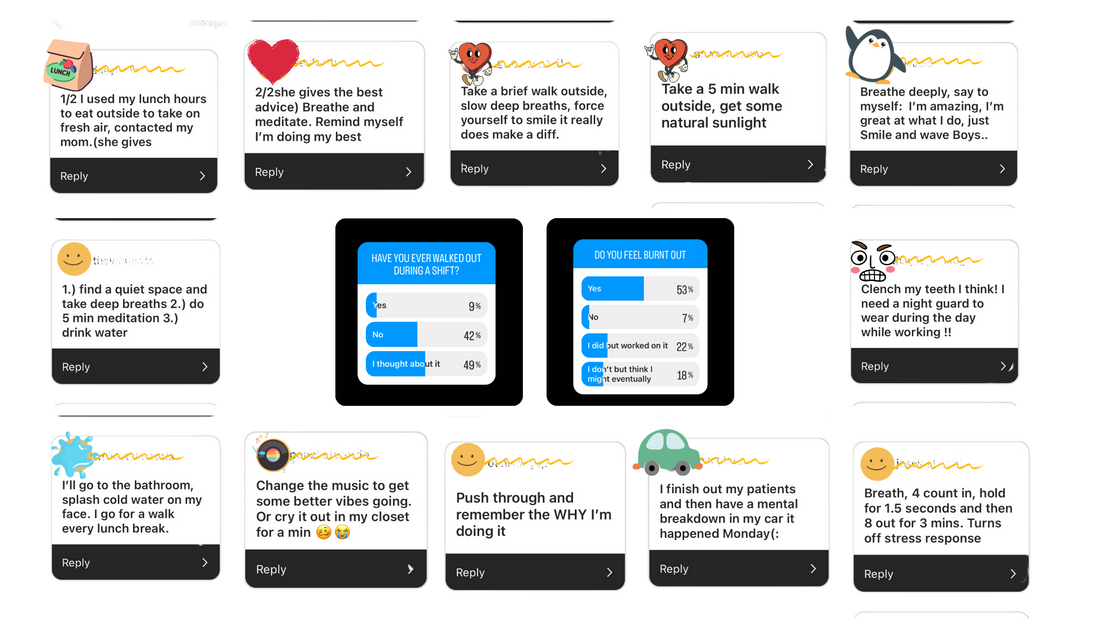Before we begin, here are a few IG accounts with fellow dental professions who openly discuss this and other related topics:
Okay, I asked our IG followers for some input on this one. I must admit, I have never attended a burnout course BUT that doesn’t mean you shouldn’t.
Feeling overwhelmed at work is a common experience, but there are several strategies you can employ to help alleviate that stress and regain control of the situation. We polled our IG @Toothlife audience to see what they do in order to destress at work and here is what some of them said helps.

- Take a Deep Breath: When you start to feel overwhelmed, pause and take a few deep breaths. This simple technique can help calm your nerves and clear your mind.
- Prioritize Tasks: Make a list of your tasks and responsibilities, then prioritize them based on urgency and importance. Focus on tackling the most critical tasks first. Here’s a great resource from the Harvard Business School resources. (This resource describes 3 different techniques for you to try which also may bode helpful for your patients when they are feeling nervous or anxious. Screenshot this and save it to a folder in your phone, you never know when you might need it.)
- Break Tasks into Smaller Steps: Sometimes, overwhelming feelings arise from looking at a massive project. Break it down into smaller, manageable tasks to make it more approachable. Patient care, chart notes, and communicating with other team members is tough. Consider having time blocks in your schedule when you do admin tasks or write your chart notes.
- Time Management: Use time management techniques like the Pomodoro Technique (working in focused intervals with short breaks) to stay on track and prevent burnout. This technique is one I use to help me keep track of the time I spend on things like this newsletter. Set deadlines for yourself that are realistic but still challenge you to strive for efficiency.
- Set Realistic Expectations: Be honest with yourself and your superiors about what you can realistically accomplish within a given timeframe. Overcommitting can lead to overwhelm.
- Say No. It’s a full sentence.
- Seek Support: Talk to your manager about your workload and stress levels. They may be able to provide assistance, delegate tasks, or offer guidance.
- Take Short Breaks: Regular short breaks during the day can refresh your mind and prevent burnout. Go for a walk, stretch, or do a quick mindfulness exercise.
- Ask for Help!
- Learn to Say Yes to Help: If colleagues offer assistance, accept it graciously. Don't feel like you have to do everything on your own.
Remember that feeling overwhelmed is a common human experience, and it's okay to seek help and implement strategies to manage it effectively. Don't think twice about communicating with your team members, classmates, office manager or employer. You need to be happy and healthy to help patients be happy and healthy.
Go on now, set those boundaries!

